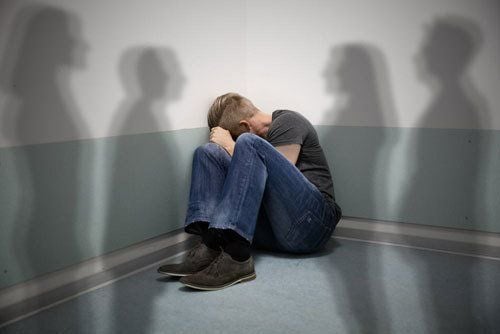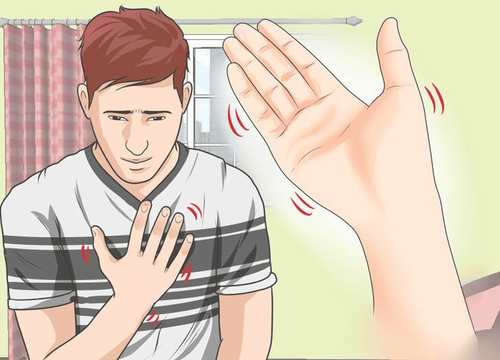This is an automatically translated article.
Anxiety and stress are common conditions, occurring in most of the world's population. These feelings help people deal with situations, deal with danger, and complete daily tasks and tasks. However, when anxiety and stress occur too often, at a dense level that is difficult to control, this condition can cause psychological problems, affecting the mental and physical health of people. many people.
1. What is anxiety and stress?
Most people experience feelings of stress and anxiety from time to time. Stress occurs when any need is placed on your brain or body. Feelings of stress can be triggered by an event that makes you feel frustrated or anxious. Anxiety is a feeling of fear, worry, or discomfort that can occur in people who are unable to identify stressors in their lives.
Stress and anxiety are not always negative. These feelings can help you through life challenges or dangerous situations. Examples of situations that cause everyday stress and anxiety include looking for a job, feeling nervous before a big test, or being confused in certain social situations. For many people, feelings of stress and anxiety are the driving force behind getting things done. However, if stress and anxiety start to interfere with your daily life, it could be a sign of illness and more serious problems.
2. Recognizing Stress and Anxiety
Feelings of stress and anxiety can cause both physical and psychological symptoms. Everyone experiences stress and anxiety in different ways. Common symptoms include:Abdominal pain

Căng thẳng và lo âu có thể khiến người bệnh đau bụng
Muscle tension Headaches Fast breathing T im Fast Sweating Dizziness Dizziness Frequent urination Changes in appetite Difficulty sleeping Diarrhea Fatigue In addition to physical symptoms, stress and anxiety can cause symptoms mental or emotional symptoms include:
Feeling close to death Panic or anxiety, especially in social situations Difficulty concentrating Unreasonable anger Restlessness People with stress and anxiety in long time may experience negative health symptoms. They are more likely to develop heart disease, high blood pressure, diabetes, and possibly even depression and panic disorder.

Căng thẳng và lo lắng trong thời gian dài có thể tiến triển thành trầm cảm
3. Cause
3.1 Common causes Change of residence, geographical relocation Starting a new school or new job Illness or injury Having a sick or injured friend or family member Death of a family member or friend Marriage Pregnancy, childbirth Breaking up a relationship Recommended video:
Can postpartum depression be cured?
3.2 Drugs and Stimulants Drugs containing stimulants can make symptoms of stress and anxiety worse. Regular use of caffeine, illegal stimulants such as drugs or even alcohol can also make symptoms worse.
In addition, some prescription medications can make stress and anxiety symptoms worse including:
Thyroid medications Asthma inhalers Weight loss medications 3.3 Depression and psychological disorders Estimated About 40 million Americans have some type of anxiety disorder.
People with these disorders may experience long-term daily anxiety and stress. These disorders include:
Generalized anxiety disorder (GAD): is a common anxiety disorder characterized by feelings of uncontrollable anxiety. Sometimes sufferers worry about bad things happening to them or their loved ones, and sometimes it's not clear what the reason for the anxiety was. Panic disorder: is a condition that causes panic attacks, fear accompanied by rapid heartbeat, and shortness of breath, fear of what is and may happen.

Người mắc rối loạn hoảng sợ có thể cảm thấy lo lắng và căng thẳng hàng ngày
Post-Traumatic Stress Disorder (PTSD): is a condition that causes anxiety due to flashbacks of a traumatic experience. Sociophobia is a condition that causes intense feelings of anxiety in situations that require interaction with others. Obsessive-compulsive disorder: is a condition that causes repetitive thoughts and compulsions to complete certain ritual actions. In addition, if you have thoughts of harming yourself or others, you should seek help from a medical professional as soon as possible. Feelings of stress and anxiety are treatable conditions. There are many resources, strategies and treatments available in medicine today that can help patients with severe stress and anxiety.
4. How to manage stress and anxiety
For those who experience pure feelings of stress and anxiety, there are several lifestyle changes that can help alleviate these symptoms. These techniques can also be used in conjunction with the treatment of various psychological disorders.Eat a healthy, balanced diet Limit caffeine and alcohol consumption Get enough sleep Exercise regularly

Tập thể dục thường xuyên để giảm bớt các triệu chứng của căng thẳng và lo âu
Meditate Make time to do a hobby Keep a diary of your feelings Practice deep breathing Learn stressors Talk to a friend Use of alcohol or other stimulants to prevent Feelings of stress and anxiety are temporarily discouraged. This habit can lead to alcoholism or substance abuse in the long run. Not only will it not help with stress, but it can also make it worse.
There are many ways to find treatment for stress and anxiety. If you feel like you're not able to cope with stress and anxiety, medical professionals can help you overcome the problem. Therefore, it is extremely important to recognize the signs of anxiety and stress. At the same time, you should listen to your body and your emotions to know when it's time to seek medical help.
Where is the treatment for stress and anxiety relief?
Please dial HOTLINE for more information or register for an appointment HERE. Download MyVinmec app to make appointments faster and to manage your bookings easily.













